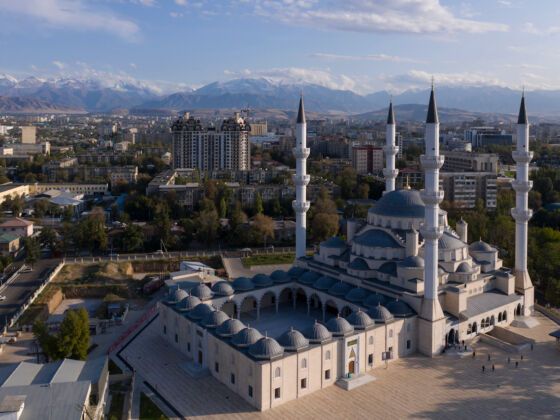I WAS TWENTY-ONE AND WORKING IN BAGHDAD when the idea to move to Kyrgyzstan first came to me. I was working at the US Embassy as a media analyst with my boyfriend, Farrell, a guy I met in Arabic class at university, who somehow convinced me (and my parents) that it would be a good idea to follow him to a warzone.
I thought of it as the ultimate one-up passport stamp and the perfect solution to pay off more than $60,000 in student loans. I imagined that my time in Baghdad would be totally badass, and I would move back to Washington DC as an expert on Arab media with tons of stories to tell.
